The Association of Southeast Asian Nations (ASEAN), comprised of Brunei, Cambodia, Indonesia, Laos, Malaysia, Myanmar, the Philippines, Singapore, Thailand and Vietnam, is a good example of the continent’s diverse cultural landscape. Together the 10 countries represent Asia’s third-largest economy after China and India. ASEAN GDP is expected to grow by 5% in 2017, according to the International Monetary Fund, compared to 3.7% globally.
The ASEAN economic community is among the most attractive international markets. Hiring a business leader capable of success in a region home to myriad languages and cultures is no easy task, however. Global firms routinely face the dilemma of whether to retain senior talent from within such a diverse region, or pay more for an unfamiliar expat who will invariably face a steep learning curve acclimating to the local environment, before even beginning to execute the business plan.
Some of the world’s leading firms have demonstrated that developing world-class leaders by cultivating talent in situ rather than importing senior executives can pay great dividends. Dr. Muruga Vadivale, former Head of Medical Affairs at France-based pharmaceutical giant SanofiAventis for the ASEAN region, rose through the ranks of international pharmaceutical companies empowered by mentorship and professional development opportunities throughout his 25 years in the industry.
The Foundation of a Leader
Sri Lankan Tamil by heritage and Malaysian by birth, Vadivale grew up the son of a diplomat, spending his early years between Kuala Lumpur, Indonesia, Thailand and Japan, exciting experiences he said inspired him to work abroad later in life.
The road to his first international post was not straightforward or easy, however. To get there, he had to set out confidently on his own and persist. Vadivale could not get entry for a medical degree program in Malaysia, so he entered a pre-med course for entry to Manipal Medical College in Mysore, India. "While pursuing the pre-medical course, the living conditions were rustic, he said. “It was like a boot camp training and I enjoyed it!” he recalled fondly.
He earned a M.B.B.S at the University of Mysore before being awarded an ASEAN Graduate Student Fellowship to pursue a master’s degree in occupational medicine at the National University of Singapore, completing his studies in 1990.
Vadivale joined government service in Malaysia as a Medical Officer for the first 10 years of his career before joining Laboratoires Servier as Clinical Research Manager for Malaysia, Singapore, Brunei and Indonesia.
 Dr. Muruga Vadivale, former Head of Medical Affairs at SanofiAventis for the ASEAN region
Dr. Muruga Vadivale, former Head of Medical Affairs at SanofiAventis for the ASEAN region
In the year 2000, Vadivale joined SanofiAventis as Medical Director with responsibility for Medical Affairs in Malaysia, Singapore and Brunei. In 2007, he was promoted to Senior Director, Medical and Regulatory Affairs for India, Sri Lanka and Nepal, managing eight departments and a staff of 70. “That was my first overseas position. I was part of the leadership team. I was able to observe the other senior leaders very closely and I was able to learn a lot from them,” said Vadivale.
Professional Development
Organisations that invest in cross-functional and cross-border leadership development programs tend to produce better leaders, according to Roshan Thiran, founder and CEO of social enterprise company, Leaderonomics.
In 2009, the same year he was appointed Chairman of the newly formed Medical, Marketing, Regulatory & Business Review Committee, Vadivale participated in a Senior Leadership Perspectives program in France. “I came from a very small country to take up a large organization in India,” he said, adding, “My boss felt it was about time for me to go to these meetings.”
Participants came from SanofiAventis offices across the world for a combination of leadership and talent development workshops. The program included a Myers-Briggs Type Indicator that identified Vadivale’s strategic approach, analytical mind and strong sense of belonging and connectedness.
“Going to such structured programs allows you to better understand yourself and helps you to work with similar leaders,” he said. “We call it ‘cross-functional fertilization’. Then we take those skills and apply them.”
Intense learning environments like the workshops Vadivale participated in encourage best practices and help organisations develop their human resources capabilities and grow, said Leadernomics CEO Roshan Thiran.
The experience in France gave Vadivale a better understanding of his ability to connect at an individual level, build trust, develop skills and empower people, enhancing his management capabilities and making him a more effective leader, he said.
Vadivale’s early international leadership training wasn’t a structured mentorship program, he acknowledged, but SanofiAventis has since formalized its talent development initiatives.
The identification of internal talent is now part of a leader’s mandate at the company, Vadivale noted. “HR then takes responsibility to come up with programs to develop them further,” he said, before meeting with the regional leader to create a structured program.
“We identified talent and then worked on a project we felt was a pressing need,” he said. “We’d find the most suitable senior leader and we’d also have an external HR consultant advise and oversee the program,” Vavidale noted.
Achieving Buy-in
In India, Vadivale learned the value of exercising patience before attempting to implement changes and the importance of obtaining buy-in from members of staff when the time was right to modify ingrained behavior. A successful leader necessarily transfers ownership of new ideas to those who will implement the corresponding changes, he said.
When he recognized how debilitating long meetings could be for his team, for example, he told his colleagues, “’I think this meeting is taking a lot of your time and you could be more productive.’ So I proposed a solution and got buy-in from them and they ran with it.”
Vadivale’s cross-cultural management skills were put to the test when he was offered a post in South Korea in 2011 as Senior Medical Director. Korea proved to be his most challenging international business environment to date, both culturally and professionally, he said. He made a concerted effort to show respect for local customs from the outset, but didn’t shy away from asserting his own management style once settled in, he noted. The power hierarchy was strictly observed in South Korea, he said, with his staff members bowing as they entered and exited his office. “I gradually shared with them my preference for having less formal workplace relations,” he said.
Vadivale encouraged his colleagues to go home to their families rather than remain in the office late into the evenings until he left, which was common practice as a show of respect for their superiors, he said. Demonstrating empathy for members of staff isn’t just humane, it actually gives them more drive, Vadivale said.
Lifelong Learning
Vadivale became a staunch proponent of educational tools that empower students and professionals alike. During his time in India, he broadened the geographic scope of Amrit, an internal publishing initiative at SanofiAventis that delivered workshops on writing for medical journals to PhD candidates and other advanced degree students.
“The expertise to convert data into a manuscript is what Amrit was able to share. We decided to create a value-added service that could transfer this specialized knowledge to a lot institutions, including government hospitals and universities,” Vadivale said. The Amrit initiative was taken to other regions with similar impact, he added. Similar workshops were led on statistics and other essential skillsets for the medical field, he noted.
While the business case might be hard to justify in a strict sense, such programs build capacity among key partners and boost morale internally, he said. “It doesn’t contribute to the bottom line, It’s more about stakeholder engagement,” he noted. The model was very simple: The beneficiary institution paid for the flights and hotels and the company allowed its team members two or three days to travel to lead the workshops. “It provided a lot of value to my staff, and for me. They felt they were contributing beyond the scope of their job description,” he said.
 Dr. Muruga Vadivale with his family
Dr. Muruga Vadivale with his family
Vadivale was a pioneer in employing social media to extend the reach of his knowledge, launching a website, Vads Corner, in 1995. “Initially it started as an experiment to test my ability to put information on social media and later it developed into a passion to share medical information on the Internet by writing articles for Malaysian Medical Newsletter starting in March 1997.”
Vads Corner developed into a one-stop-shop for information on outbreaks like HFM, Haze, Nipah, Sars, West Nile Virus and Chickungunya. While at SanofiAventis, he established several other online platforms to share resources and help with the onboarding of new personnel and medical managers. The company adapted many of these platforms for use in other geographies, he noted.
Propagating Leadership
In each of his international posts, Vadivale was mindful to engender integrity and respect from his team members, leading by example in his day-to-day work, he said. The courage to make tough decisions, often with an incomplete set of information, and to take responsibility for those decisions, regardless of the outcome, defines a leader, Vadivale asserted.
Demonstrating confidence and empathy played a key role in eliciting respect from his colleagues in each new international market where he worked and was a prerequisite for achieving buy-in when it came time to implement a change of behavior and launch new initiatives, he added.
“I believe a company is what it is because of its people. People make a company as much as a company makes its people. If you value people, they will automatically work for the company and for you. A lot of my success is due to what my teams were able to achieve,” he added.
Success is not going to fall at your feet, you have to make your own path, said Vadivale. To the extent you create opportunities for yourself by being proactive and by taking on new challenges beyond your comfort zone, success will follow, he added. This applies no matter how senior your existing post, he said.
“The last year I was in Korea, there was an opening for a candidate to lead Sanofi’s vaccine division in the country. They wanted to hire someone and I said, ‘no, I’ll do that as well,’” he recalled.
Thanks to the experience he garnered by taking on this additional responsibility in South Korea, Vadivale qualified for his subsequent post as Senior Director Asia-Pacific, Dengue Medical Affairs, Sanofi Pasteur.
In mid-2017, Vadivale retired from SanofiAventis after 17 years serving the company. He has since established a consulting practice advising medical start-ups based on his decades of broad experience in the pharmaceutical industry. In his new role, he continues to share the deep knowledge gleaned from his lifetime worth of contributions to the medical field across the ASEAN region.
Executive Summary
Dr. Muruga Vadivale has promoted ongoing educational and professional development opportunities for himself, his colleagues and external stakeholders throughout a successful career leading diverse teams across the ASEAN region. Passion for the job, empathy for his fellow team members and expertise gained from years pushing himself to over perform gave Vadivale leadership capabilities to excel in the highly competitive international pharmaceutical industry. His example demonstrates the merit of nurturing leadership in strategic international growth markets like ASEAN.


